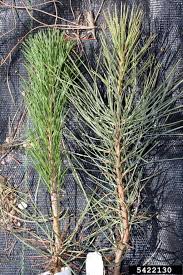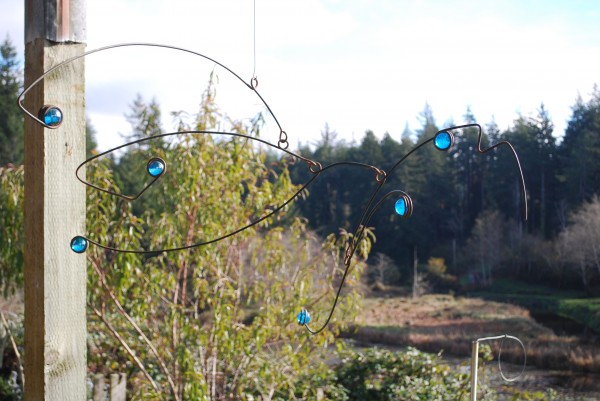
24 Nov Outlaw Reflections: Trees for Future Generation
In this one from Oleh Lysiak planting trees becomes a metaphor of hope for the future: give me saplings, not saps any day.
Trees For Future Generations
Our infamous Rocky Mountain weather has turned weekends into bone-chilling, nose-numbing, finger-tingling experiences. This past Sunday held true to form.
Jan Hackett, our resident reforestation expert, gave me directions to planting sites on Sanborn Park and I took off in search of tree planters Sunday afternoon.
First left on the flats after the climb up Sanborn Park showed lots of tire tracks. A mile or two down the dirt road and I encountered an obvious tree planters camp. Scattered over a half-mile or so were visqueen shelters, tents, campers, camp kitchens and cook fires. It reminded me of tree planting 20 years ago, when I did it for a living.
A little way down the dirt, the tracks turn right up the hill into an area devastated by fire with scarred black carcasses of ponderosa standing like sharpened charred perpendicular reminders of the death of a forest.
Dirt turns to rock as the angle of the track increased. Three mud-spattered 4X trucks are parked at free will angles with planters huddled against searing wind and traces of snow. These are the slackers, the ones who gave it up and decided to rest rather than plant.
A spotted dog comes over to check me out. I assume he ascertains I’m OK. He lifts his leg and pees on the left rear tire.
“That means you’ve been accepted,” a female voice from inside one of the trucks says.
I scratch the spotted dog on the ears. He doesn’t bite me. Good dog.
The voice belongs to a tall, wiry, slight young woman named “Saint.” Not Saint Joan or Barbara Saint or The Saint or A Saint. Just Saint. Her smile, which fills her dirty, gaunt face with light, radiates like a 52 Buick grille in benevolent communication with the cosmos.
Saint’s hands are encrusted with layers of dirt, like the hands of the rest of the crew. Her hair is some dark, indistinguishable color, matted, wild; her skin is sunburnt, windburnt, weather beaten, parched. Her comrades share similar characteristics.
More planters straggle in, exhausted, ready to give it up for today. More dogs show with each planter. I scratch one of the new arrivals on the ear. He yelps. I quickly withdraw my hand.
“There’s a big dog in camp chewed on him,” Saint explains, “and don’t even try to pet the dog coming in now.”
I take her word and don’t.
Two-dozen planters from the Southwest Forestry Workers Cooperative work this planting job for the United States Forest Service. The co-op, based in Bernalillo, NM, has been worker-owned since 1977. They do reforestation, forestry consulting, windbreaks, fencing, erosion control, mine reclamation, wetlands, trails and surveying, and native planting.
They bid for USFS contracts on a competitive basis with other planting outfits, own their own tools, equipment and attitudes. Problems are worked out over the campfire or during regularly scheduled crew meetings. Everyone has an equal say.
They proudly wear t-shirts with the motto “STAND OUT AND RESIST.” Each is considered an independent contractor. Implied respect is apparent in the way they treat each other. One of the crew serves as liaison with USFS representatives but that’s as far as that person’s authority goes.
When jobs are successful the co-op reinvests profits into the business. New members are accepted on a temporary basis at half pay until they prove themselves. Like with any family business, it helps to know somebody to get in the coop.
The ground on this job is nasty, rocky and planting isn’t easy especially with the dry, windy conditions this spring. Bitter cold makes it worse but planters work every day to finish the contract in the allotted time to the satisfaction of the USFS inspectors.
Jay Nettles, a tattooed, pony-tailed blonde youngster plants in a sleeveless sweatshirt oblivious to the weather. He swings his hoe dad like a combination John Henry and Johnny Appleseed. He’s been with the co-op for two months.
“It’s honest work,” is all he says as he keeps the arc of his hoe dad steady, planting the last of his seedlings.
These ponderosa seedlings started as cones in local forests, were collected, germinated and grown in a Nebraska nursery, trucked by semi to Sanborn Park where they’re being planted by a crew of independent, wild, tough, hard working young Americans from New Mexico.
I’m particularly careful not to step on freshly planted seedlings on my way back to the truck and the heater. It is snowing harder. There is hope, respect and reason in what’s left of the West today.
Editor’s note about Oleh:
I am reminded of the man every day. A talented sculptor, one of his mobiles sits on the coffee table in our living room. But I had not seen or heard from Oleh Lysiak for over 20 years. Ah, the wonders of social media. We rediscovered each other a few months ago, which was when I also discovered the artist is also a writer – at least nowadays – though making marks on paper is only one among a very long list of talents, some slightly sketchy.
O.Z. Lysiak has from time to time worked as a reporter, editor, columnist, photographer, public affairs officer, restaurateur, festival booth owner-operator, ski technician, carpenter, sailor, smuggler, tree planter, fishing guide, truck driver, river guide, cook, wood-cutter, trash collector, marine gravity operator, reclaimed wood broker and sculptor. He has written for The Ukrainian Weekly, The Oregonian, and closer to home, The Aspen Daily News, The Aspen Times, The Crested Butte Pilot, The San Miguel Basin Forum – and The Telluride Daily Planet. Oleh’s poetry has been widely published and his is author of several books, including “Neighborhood of Strangers” and “Art, Crime & Lithium,” also available locally at Between the Covers Bookstore.
Given his street cred and the fact he wrote extensively locally in the bad old days, I asked Oleh if he would mine his files for past columns that might be of interest to our readers. I am thankful the man said “yes.”





Sorry, the comment form is closed at this time.